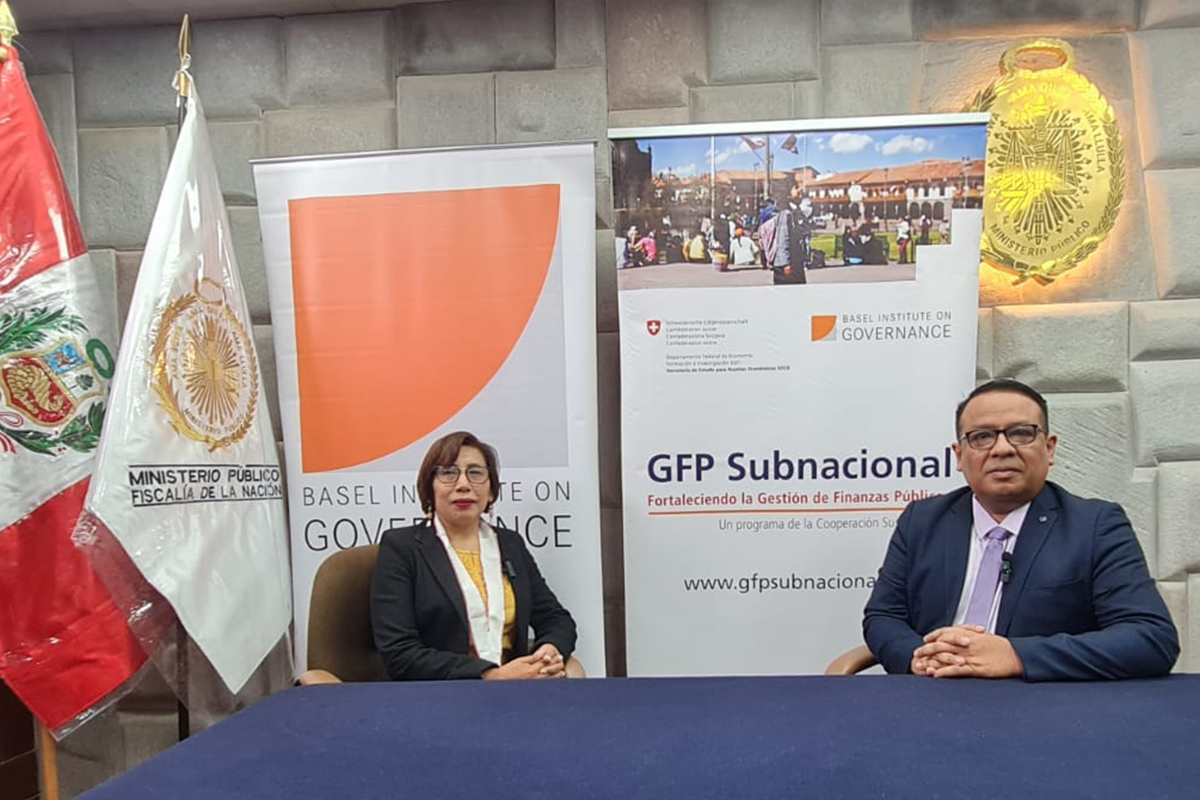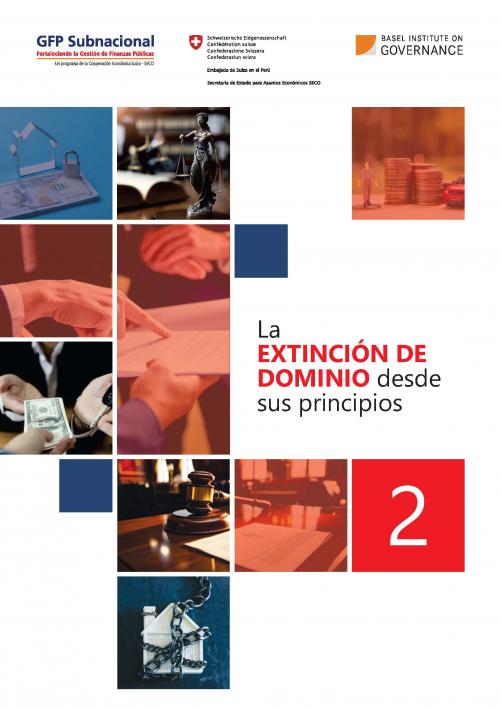The Quispe Callo case: Peru’s provincial prosecutors recover corrupt assets through non-conviction based confiscation

Authorities in Cusco in southeast Peru have succeeded in recovering a house and land linked to acts of corruption by the former mayor of the province of Canchis, using a recently introduced non-conviction based forfeiture law.
Specialised Prosecutors working with asset recovery specialists of the Programa GFP Subnacional were able to prove that land was purchased, and the house built, with proceeds of corruption. The assets were confiscated under Peru’s law of Extinción de Dominio, a form of non-conviction based confiscation law targeting illicit assets separately from criminal proceedings.
The judgment under the Extinción de Dominio law is the first obtained by Peruvian authorities at the subnational level with the support of the Programa GFP or Subnational Public Finance Management Programme of the Swiss SECO Cooperation in Peru, implemented by the Basel Institute on Governance.
Corruption doesn’t pay
The successful recovery of the assets demonstrates – to corrupt officials as well as to citizens – that corruption does not pay.
It also indicates the value of having a robust non-conviction based confiscation law and system at the subnational level. While criminal proceedings against the mayor are ongoing, they typically take much longer to complete than non-conviction based proceedings, which use a lower (civil) standard of proof.
In the meantime, valuable assets such as the corruptly obtained land and house cannot be recovered, and even have to be managed and maintained to avoid a depreciation in value.
The Basel Institute supported the Peruvian authorities in the drafting and enactment of the law in 2018, as well its implementation since then via a national “subsystem” of specialised courts, tribunals and prosecutors’ offices. As well as targeted capacity building and case-based mentoring, our team has organised peer learning events such as major two-day convention of judges specialised in the use of this law.
In the prosecutor’s words
Dr. Sergio Jiménez, who leads the team responsible for asset recovery assistance at the subnational level under the long-running programme, spoke to Dr. Yolanda Inquiltupa Calvo about the significance of the "Quispe Callo", named after the former mayor Jorge Quispe Callo. Dr. Inquiltupa Calvo is Provincial Prosecutor for Extinción de Dominio in Cusco.
Read or watch the original interview in Spanish.
Dr. Inquiltupa, the Extinción de Dominio law came into force five years ago. How important is this tool for Peru in general and for Cusco in particular?
Very important. Reality has taught us that criminals are not deterred by the prospect of a conviction. It is not a problem for them to go to prison if they can get out and still enjoy the assets they have acquired illicitly.
This is where non-conviction based confiscation comes into play. Through a judicial process that takes place in court, we are able to confiscate assets that have been acquired with proceeds of crime. We can also confiscate assets that were used to facilitate the commission of crimes. The assets are being returned to the public treasury for the benefit of citizens.
Why is the decision in the Quispe Callo case important and what message do you think it sends out?
This ruling is very special. We launched the Extinción de Dominio case after learning of a police investigation into the former mayor Quispe Callo together with other public officials. We were then able to identify assets that he had acquired, both himself and also jointly with his partner.
In the ruling, it was established that not only had the land been acquired with funds arising from public-sector corruption, but also the construction of the house itself. The total value was approximately PEN 350,000 (just under USD 100,000).
Can you tell us about your collaboration with the Basel Institute’s asset recovery specialists in this case?
For us, as an asset recovery office, the support provided by the Basel Institute on Governance through the Programa GFP Subnacional is very important. First, for the technical assistance related to specific cases. Second, for the more general assistance in improving our effectiveness and productivity.
In this case, the team supported us in the analysis of the case, in the review of the evidence and in the coordination required to gather more information. As a result, we were able to jointly draw up a very well prepared action plan that allowed us to identify the illicit assets and launch proceedings to confiscate them.
In your opinion, what can we look forward to in terms of asset recovery through Extinción de Dominio and what does it mean for the targeting of criminal behaviour?
I foresee a very promising outlook for Peru in terms of asset recovery. This is not only because of the progress we have made at the provincial level here in Cusco. At the national level, where the law is being used by different entities of the Peruvian system, asset recovery is advancing by leaps and bounds.
I understand that we have more than 600 judgments at the national level, and we have already recovered assets in excess of USD 60 million through this law alone. Where nothing was happening before, now we are finally seeing progress.
What we are trying to achieve with this is to bring about a change in thinking – a change in the perceptions of citizens around crime and corruption. The general perception is that crime is lucrative. We want to reverse that, so that citizens know that crime does not pay.
Learn more
- Learn more about the Programa GFP Subnacional in Spanish or English.
- Learn more about the work of our International Centre for Asset Recovery


